The expectation trap
How to stop social media warping our perception of & connection to reality
No wonder you feel exhausted.
No wonder you feel like you’re chasing your tail.
No wonder you feel as though you’ll never be able to catch up.
No wonder you question how everyone else seems to do it.
No wonder you feel like you’re pretending.
No wonder you are quick to irritation.
No wonder you feel like you can’t pay attention to the things you care about.
No wonder…
Expectations weigh heavy. Expectations from family, work, and society. Although our individual perceptions of the expectations upon us, and those we have of ourselves, vary, there are expectations in our culture that are pervasive. And now, more than ever, we have access to the lives of others through the internet and social media - the perfect place for comparison and the construction of expectations we never would otherwise have had of ourselves.
We are expected to work one-size-fits-all rigid hours, meet unreasonable admin deadlines, find the perfect workout regimen to stick to consistently, enjoy a takeaway but food prep our meals for the week ahead to balance it out, make sure we don’t leave the house looking disheveled, be prepared to act sociably on cue, keep track of birthdays and anniversaries, have incredible new experiences at least once per month, have an exhilarating hobby on the side, travel regularly.
In my head expectations sound like ‘you should do this’ or ‘they would love it if I did that’. The words ‘should’ and ‘would’ run riot, as if they’ve been paid for a certain daily quota. They both indicate a strong belief that something is expected of me.
So my internal monologue of expectations upon myself will often look something like this:
‘Ugh I’m feeling rotten because I just entered my luteal phase but I should go into work today because no-one else takes time off for their period. Oh, and I told myself I would only eat salmon and salad for lunch today like in that e-book I downloaded from that beautiful influencer online but honestly I only have the energy to make pasta (also, why am I so gluttonous?! I should be able to control myself like they can!). Oh and I should really go into the office today because there’s drinks after work and I’m always the one bailing - but why do I feel like I can’t even say hi to the postman today without crying?! What is wrong with me?!’
More often than not the expectations put upon us, that we internalise and reinforce upon ourselves, cannot all be met in reality because many are unreasonable and unrealistic (and frequently ableist).
What about women’s hormonal cycles? Varying energy levels? Trauma? Mental health? Structural inequality? Physical health issues? Nervous system regulation issues? Neurodiversity? Unexpected challenges and changes that come up in life? Caring responsibilities?
I’m sure I’ve missed a lot.
Structurally, our society expects so much of us yet lacks the support mechanisms needed to meet them in a healthy way. The cost of living crisis, lack of medical and financial support for chronic health conditions, years-long waiting lists for crucial diagnoses, insufficient access to therapy, a lack of affordable childcare options, accessibility issues for visible and invisible disabilities - these structural issues lack appropriate attention and funding, yet on an individual level we find ourselves feeling as though it’s on us, and us alone, to solve our problems.
Being chronically online can also cut us off from real-life community support and knowledge, whether that be blood-relatives or chosen family. When we spend time in physical space with our community we absorb all sorts of tacit knowledge that doesn’t get transferred in online places. Stories, advice, and feedback from our community helps us to manage our expectations of ourselves and our life. There is a space to retreat to where you know you will be supported when challenges arise that need solving.
The internet allows access to all the information one needs to try to figure ‘it’ out for ourselves, and social media sells us the idea that ‘it’ is first, a problem, and second, our problem to fix - alone.
Selling the solution to a perceived problem is more lucrative for big business when individuals are operating in a vacuum without turning to people they know, like, and trust. The norm becomes to turn to the internet to buy into new ideas or solve problems, instead of confiding in and seeking help from a loved one. Without adequate education around internet literacy, it is easy for people to assume that what they are being fed online is gospel truth and will ‘fix’ their either real or perceived issue.
When we are distracted by the internet, made accessible through our phones, tablets, and laptops, we are exposed to more things to aspire to be, to want to buy, and to ‘fix’ about ourselves - all the while we fail to find solutions through connection with people in our physical vicinity.
These factors, and likely many others I’ve not yet unearthed, contribute to an expectation of life that is virtually impossible to live up to in reality. The internet teaches us to expect more or different or better, often via making us feel like we have a problem that needs fixing, and at the same time distances us from the people with whom we wish to create said anticipated reality in our actual lives.
Whether we are conscious of it or not advertisements influence our consumer behaviour, to varying degrees. When I was on social media I could find myself logging off after a scroll-session with a new-found need for luxury bed linen, or a subscription to yet another streaming service, or a new brand of vitamin tablets just because I saw an influencer recommend them. If I followed this urge and made the purchase more often than not I would find myself feeling exactly the same as I did before, just with less cash in my bank account. Or, I would find myself adding to the expectations on myself based on what I saw other people doing and achieving - I’d think ‘well they’re all having kids now, so maybe I should too’ or ‘they’re going out every Friday and Saturday and Sunday so why can’t I manage that too?’. Rather than talking things through with a friend, and getting curious about their experiences, I turned to scrolling through endless reams of content that was neither nuanced nor specific to my life circumstances.
There are many upsides of the internet and I personally use it every day. I connect to you via this newsletter, I talk with readers of this newsletter who are geographically dispersed but are experiencing similar things in life via our WhatsApp community, I research projects, and use various websites and apps to navigate the admin of day-to-day life. But my fear is that we become used to navigating every aspect of life through our screens, to the point where maintaining or building touch points with people in real life becomes obsolete or somehow less appealing.
I’m autistic and I have ADHD so there are some weeks where connecting with community is not possible. But when I do find it to be possible, I am making a conscious effort to do so in real life as well as online - whether that be a short exchange with a neighbour passing by, or a pre-arranged hangout with a friend.
These are the encounters that help me live through the challenges of reality - a physical reality that is unique to me, not the reality I am encouraged to expect via the lives of others I consume online. It feels small and concrete - sometimes boring, other times slow. But I’d rather that than be whisked away by expectations fed by false promises online.
So what small acts of resistance can we take to re-route our expectations in our physical reality?
Next time you think I ‘should’, question where that expectation is coming from. Is it yours or your friends or family members, or is it from something you saw online? Do you care to keep that expectation for yourself or do you want to choose to let it go?
Think about the expectations you have of yourself that are, at this stage in your life, unreasonable. Where did they come from and do you want to let them go? If so, how could you make changes in reality to facilitate that?
Consider if there are things bothering you that you could turn to a friend or a family member to talk through rather than trying to fix yourself via the internet.
Reflect on what touch-points you have with people in your day-to-day reality. Do you need more? If so, what kind and how could you integrate them into your life? Could you create a ritual where you go to the same coffee shop and get to know the barista? Could you sit in the park and say hi to a fellow dog-walker as they stroll past? Could you join a weekly or monthly club?
Put your phone down more frequently.
WEEKLY NOTES
Hearing about your neurodivergent communication preferences in response to last week’s essay was fascinating. Every time I publish an essay I am met with such generous conversation. It’s something I am super grateful for, so thank you.
This week I finally got my first zine printed. I plan to sell them on a website I have yet to create, and I think I will also make a cheaper digital copy available via this newsletter. It’s taking me ages to publish this one zine, but I keep reminding myself that it’s okay to take my time in a world that tells me to rush and that once I’ve done it once it will be easier the second time.
Two gorgeous interviews with AURORA on the global change of art and music after death, big nights out, and Mother Earth.
This idea for making your notebooks even more fun from
.On the topic of notebooks - a new one from Kaleido I added to my collection:
Helen Hillman, a neurodivergent writer, education consultant, and friend, asked me to contribute a quote to her fantastic article for Teen Breathe magazine all about friendship.
Some days are harder than others by
.I’m still creating instead of spending time on screens most days. My favourite this week was this day when I sat in the park with a friend and we made art together. I’m logging the journey here if you want to know more about this practice I’m cultivating.
This illustration called The Treehouse of Adulthood by
.Andrew and I had our first picnic of the season after work one evening this week.
I can’t wait to receive a copy of
’s new book Becoming Little Shell’s as I have loved reading his newsletter over past months.This comic by Erin Human shared in our WhatsApp Community:
Thank you for reading! xoxo
REWILD is free to read. If you want to support my work the best way is to upgrade your subscription to become a patron or share REWILD with a friend if a paid subscription is not possible right now.
Read the archive:
Healing - Neurodiversity - Burnout - Rest - Attention Economy - Creativity


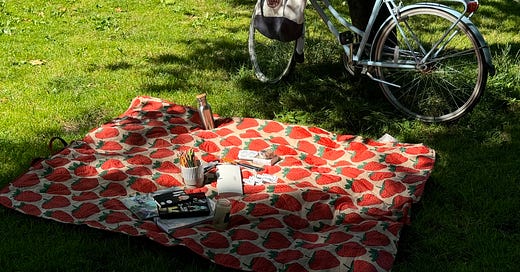


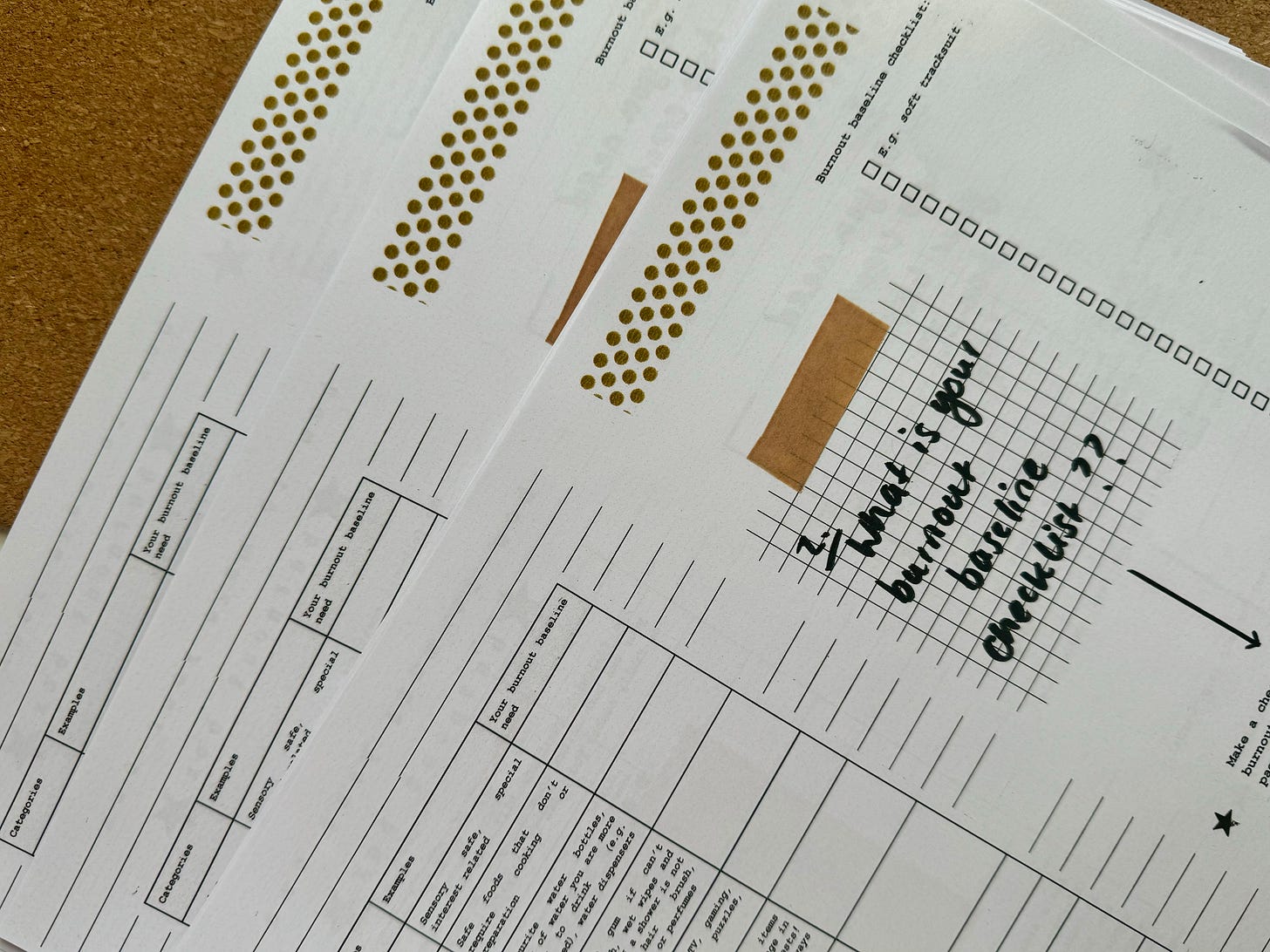

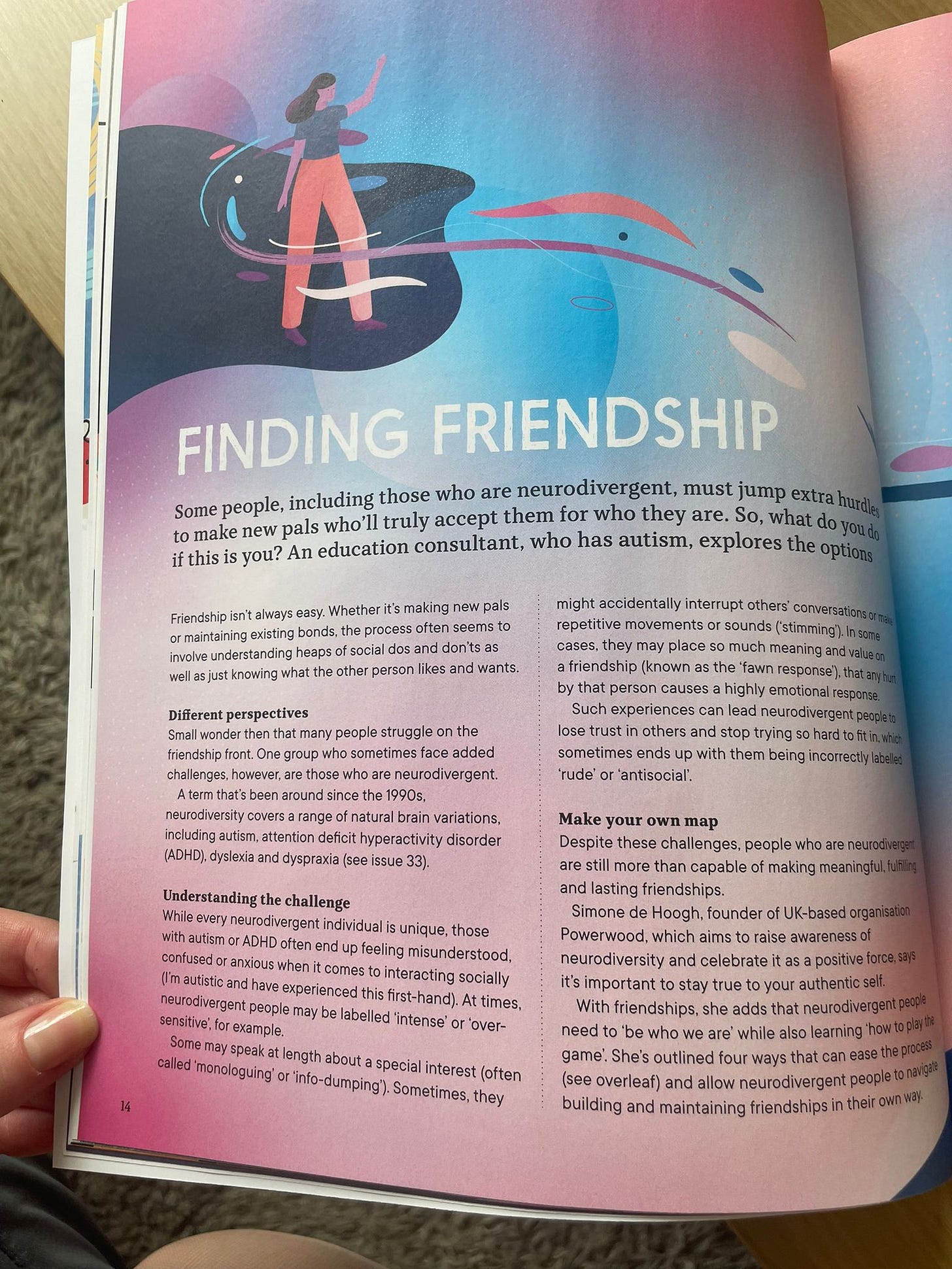

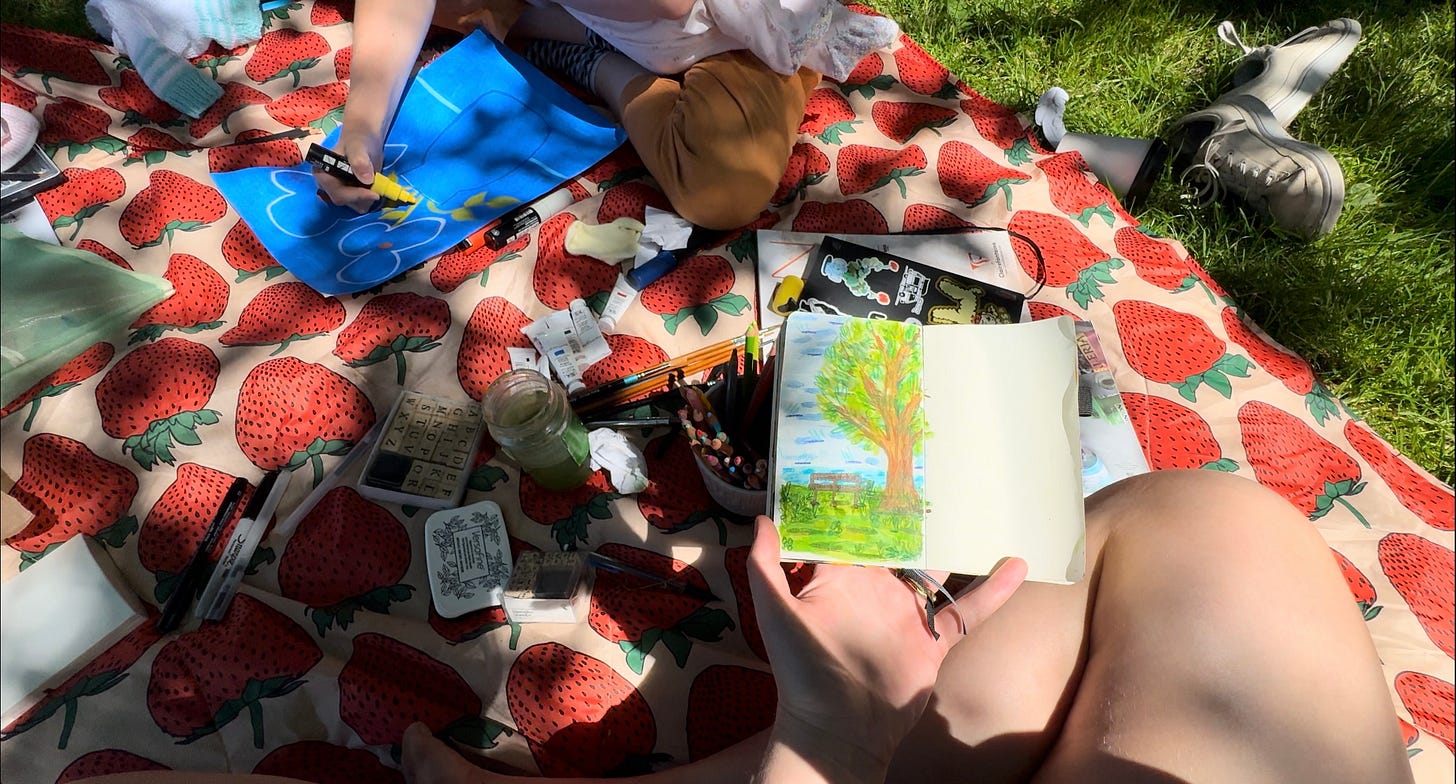
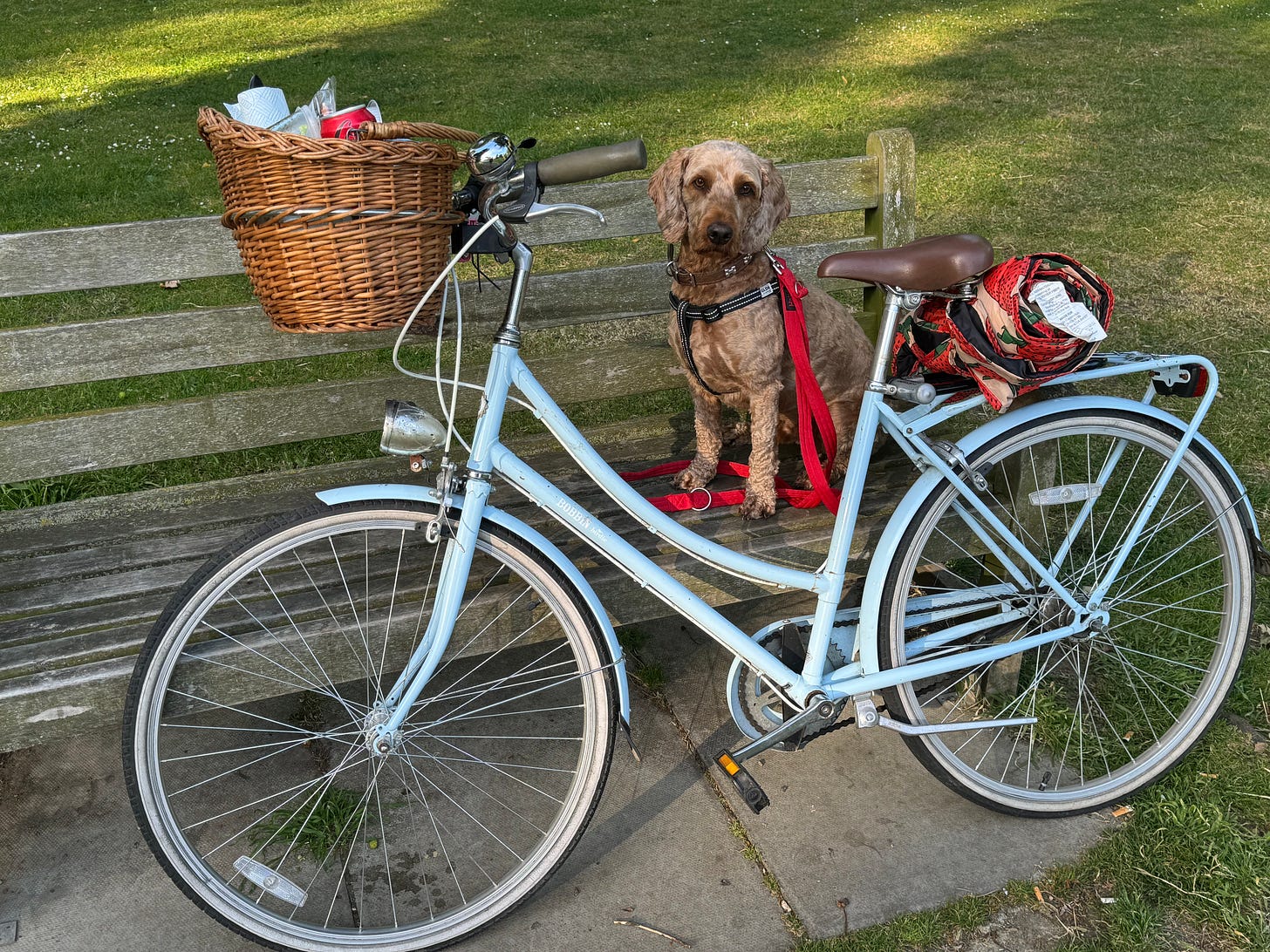
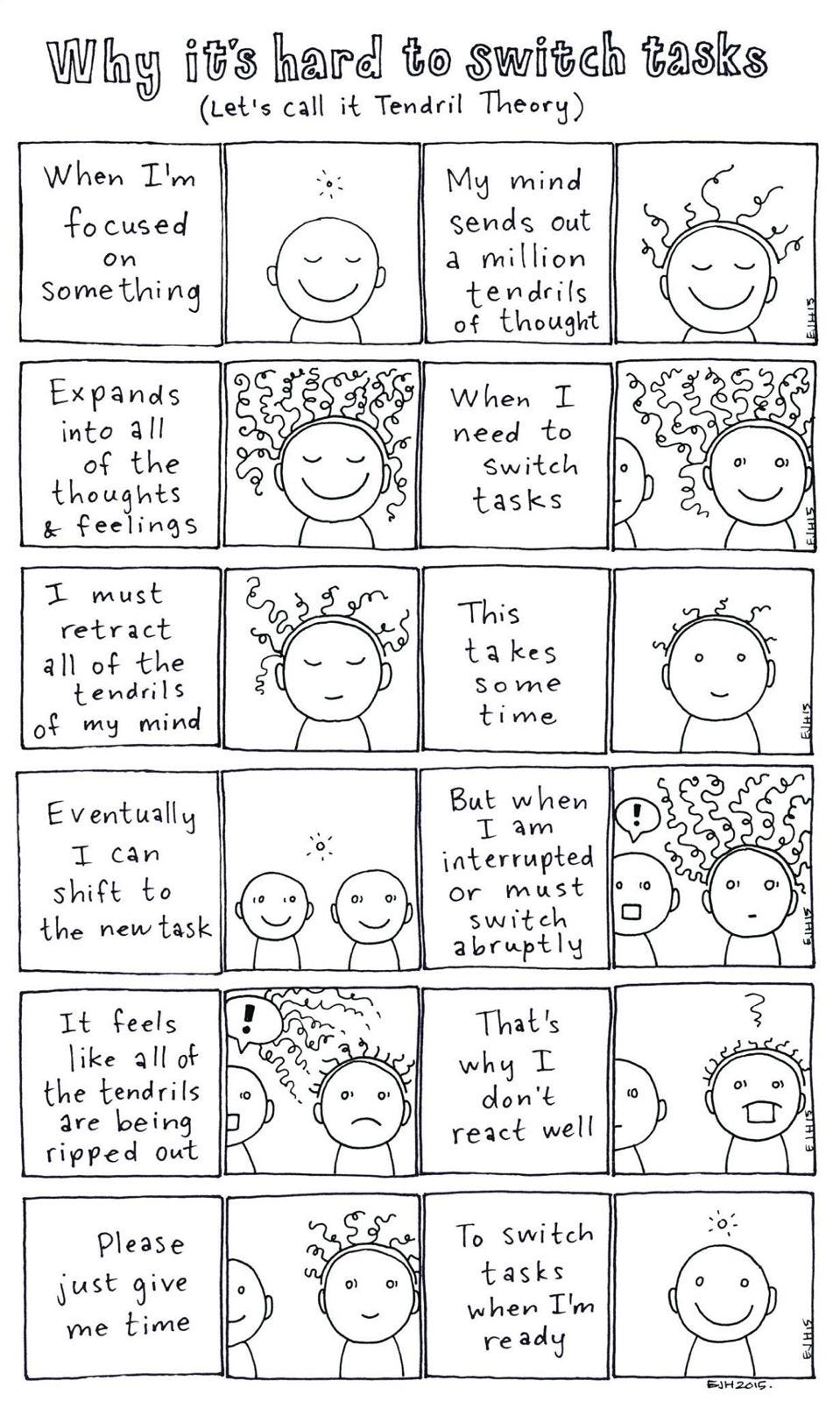
Relate to this so much. Expectation is a beast, and what contributed greatly to my burnout. I saw everyone else appear to be achieving certain benchmarks and I felt behind. Instead of working to accept myself and my path, I doubled down and worked harder. The end result was not good. I do get lonely in day to day life. I love my husband but don’t have any family and I’m still recovering from chronic fatigue, so I do spend too much time online. Ironically the more I ditch my phone and just be with myself, my thoughts, my books, my hobbies, I feel less alone. The Internet is great but it’s totally designed to make us feel inadequate. That’s how it hooks us. I love YouTube but can’t even go on anymore because everything I see is aspirational hot girls and I’m so so happy for them but I’m in a challenging phase of life and just need to be kind to myself. Loved this essay ♥️
Years ago, one of my favorite Buddhist teachers, Shell Fischer, told us during a retreat, “Don’t should all over yourself.”
I’ve never forgotten that statement.